Are you dealing with ongoing digestive problems? The gut is often called the “second brain” because it’s key to our health. If it’s not working right, it can lead to discomfort and even serious health issues. But, nature might have the answer to calm your stomach and bring balance back.
Ever noticed how some people always have a healthy gut? It could be because they use natural remedies. Ginger and peppermint can soothe your stomach. Probiotics and fermented foods can heal your gut. There’s a lot of natural help out there.
Key Takeaways
- Discover the importance of proper hydration for digestive health
- Explore the benefits of incorporating ginger and peppermint into your routine
- Learn how probiotics and fermented foods can support a healthy gut
- Understand the role of dietary adjustments, such as the BRAT diet, in soothing gut issues
- Discover the connection between stress management and gut health
Hydration: Nature's Elixir for Gut Health
Drinking enough water is key for a healthy gut. It helps fight off gut problems like heartburn and dehydration. It’s very important for people who throw up or have diarrhea, as they lose a lot of fluids and electrolytes.
Drinking Water: The Cornerstone of Digestion
Water is crucial for digestion. It makes food soft and helps break it down. This makes it easier for the body to absorb important nutrients.
Experts say to drink at least eight glasses of water per day, or about 64 ounces. This helps keep your water intake right and supports digestive health. But, everyone’s needs can change based on their age, weight, and how active they are.
| Age Group | Recommended Daily Water Intake |
|---|---|
| Children (4-8 years) | 7-11 cups (56-88 ounces) |
| Adolescents (9-13 years) | 9-12 cups (72-96 ounces) |
| Adults (14+ years) | 11-16 cups (88-128 ounces) |
It’s really important to stay hydrated, especially if you have digestive problems like dehydration. It can ease symptoms and help your gut health. Drinking enough water supports your digestive health and overall well-being.
“Proper hydration is essential for optimal digestive function and overall gut health. Drinking enough water can help soothe various gastrointestinal issues and promote a healthy, balanced gut microbiome.”
Herbal Helpers: Ginger and Peppermint for Soothing Relief
Nature offers powerful allies for an upset stomach in ginger and peppermint. These herbs have been used for centuries to ease stomach issues like nausea and inflammation.
Ginger is known for its anti-inflammatory effects. It helps reduce stomach discomfort. Ginger also speeds up stomach contractions, moving food through the digestive tract. This can ease nausea. You can find ginger in tea, chews, or supplements, making it easy to use for gut relief.
Peppermint is an antimicrobial herb that relaxes stomach muscles. Its cooling effect soothes the stomach, helping with bloating, gas, and IBS. You can use peppermint oil in supplements or tea for these benefits.
“Ginger and peppermint are natural remedies that can offer relief for a variety of gut issues, from nausea to inflammation. They are easy to incorporate into your daily routine and can be a great addition to your holistic approach to gut health.”
Adding these herbal helpers to your daily routine can help soothe your stomach and improve digestion. You can choose ginger tea, peppermint supplements, or both for gentle, effective relief.

Natural Remedies for Gut Issues: Probiotics and Fermented Foods
Probiotics and fermented foods are great for soothing gut issues. They help by keeping the gut microbiome healthy. This balance of good bacteria is key for your digestive health.
Probiotics are in foods like yogurt, kefir, and supplements. They add good bacteria to your gut. This helps break down food and supports your digestive health.
Foods like sauerkraut, kimchi, and kombucha are also good for your gut. They have probiotics and can make digestion better. They also reduce inflammation in your gut.
“Probiotics and fermented foods are like a one-two punch for gut health, restoring balance and promoting overall well-being.”
Choosing probiotic supplements or eating fermented foods can really help your gut. These foods can make a big difference in your digestive health.

To really fix gut issues, you might need to do more than just eat these foods. Adding them to your life, along with other changes, can lead to a happier, healthier gut.
Dietary Adjustments: The BRAT Diet and Beyond
A gentle, bland diet can really help with gut issues like diarrhea or constipation. The BRAT diet, which includes Bananas, Rice, Applesauce, and Toast, is a trusted way to ease a sensitive stomach. It offers essential nutrients when your digestive system needs it most.
The BRAT Diet: A Gentle Approach for Sensitive Stomachs
The BRAT diet is simple and easy to follow, great for those with diarrhea. Its foods are easy to digest, low in fiber, and kind to your gut. This lets your digestive system rest and heal. As you get better, you can slowly add more varied, nutrient-dense foods.
For those with constipation or other gut problems, a bland diet might be advised. It focuses on foods that are easy to digest and low in fiber. These foods can calm the digestive tract and help with regular bowel movements.
While the BRAT diet and bland diet can help with short-term gut issues, it’s key to go back to a balanced, rich diet soon. This ensures your gut stays healthy and you stay well overall.
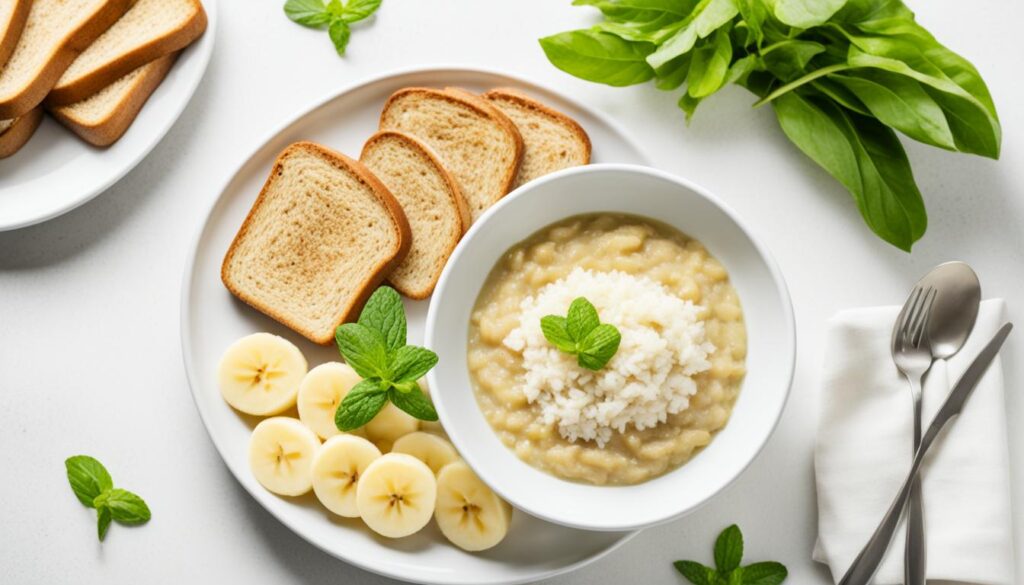
Stress Management: A Holistic Approach to Gut Health
The link between our gut and brain is deep. Stress can really affect our digestion. High stress can upset our gut balance, causing bloating, constipation, or diarrhea.
There are natural remedies and relaxation techniques to help with stress. These can make our gut healthier. By managing stress well, we can ease gut problems and feel better overall.
Mindfulness and Meditation: Calming the Mind, Soothing the Gut
Mindfulness and meditation are great for stress management. They help us focus on now and breathe deeply. This lowers stress hormones that can mess with our gut.
Doing these regularly makes us more aware of our body’s signals. We can respond better to them.
Gentle Exercise: Releasing Tension, Promoting Relaxation
Gentle exercise is key for stress management. Yoga, tai chi, or walking can ease muscle tension. They boost happy hormones and help our gut.
These relaxation techniques support our gut health. They lessen stress’s bad effects on our digestion.
| Stress Management Technique | Benefits for Gut Health |
|---|---|
| Mindfulness and Meditation | Reduces cortisol levels, calms the mind, and promotes a healthy gut-brain connection. |
| Gentle Exercise | Releases muscle tension, improves circulation, and stimulates the production of feel-good hormones. |
Using a holistic stress management approach helps our gut. Mindfulness, meditation, or gentle exercise can balance us out. They improve our gut-brain connection.
“The gut-brain connection is a powerful axis that can significantly impact our overall health and well-being. By prioritizing stress management, we can nurture a healthier gut and promote a more harmonious relationship between our body and mind.”
Lifestyle Modifications: Avoiding Triggers and Promoting Gut Healing
Some foods can make gut issues worse, like bloating and pain. It’s key to know and avoid these foods. Foods like dairy, spicy dishes, fried foods, and alcohol are common culprits. By eating mindfully, you can help your gut heal and feel better overall.
Identifying and Avoiding Trigger Foods
Watch how your body reacts to different foods. Keep a food diary to note your symptoms and look for patterns. Try removing suspected trigger foods for a while, then add them back one by one to see how you feel.
Changing your lifestyle can also help your gut heal. Eat slowly, have smaller meals, and eat foods rich in fiber. These changes can ease your stomach and support your digestive health.
| Common Trigger Foods | Potential Gut Irritants |
|---|---|
| Dairy products | Lactose intolerance or dairy sensitivity |
| Spicy foods | Can irritate the gut lining and exacerbate symptoms |
| Fried or fatty foods | Difficult to digest, may cause bloating and discomfort |
| Alcohol | Can disrupt the gut microbiome and increase inflammation |
By actively avoiding foods that trigger gut issues, you can find relief and support healing. Remember, improving gut health is a journey. It takes time and patience, but the results can be life-changing.
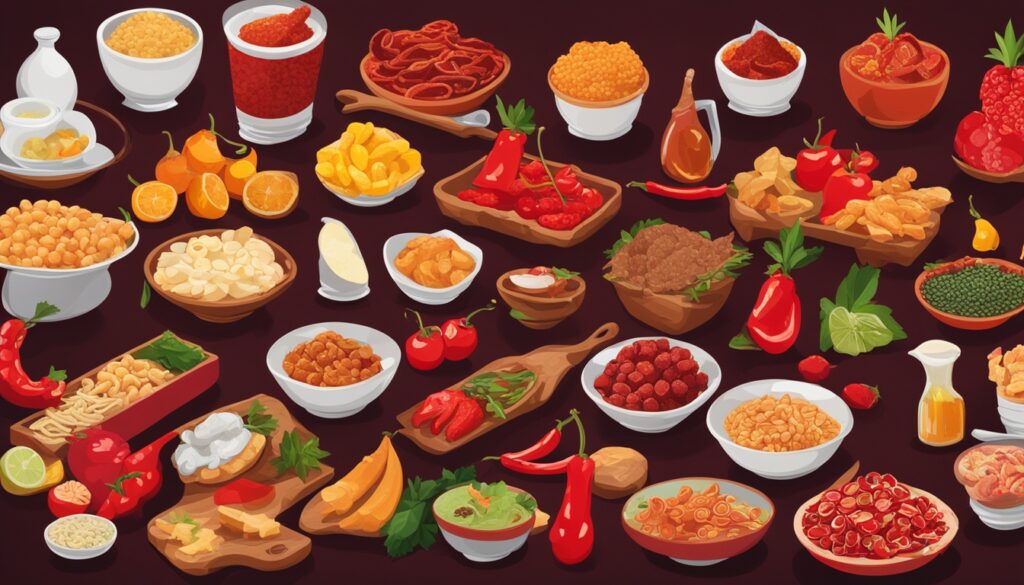
Conclusion
This article has looked at many natural ways to ease gut issues and boost digestive health. We’ve talked about drinking plenty of water, using ginger and peppermint, and trying the BRAT diet. We also covered how to handle stress to help your gut.
By focusing on gut health, you can make your life better and ease gut discomfort. Adding foods rich in probiotics, avoiding certain foods, and finding ways to relax can help. These natural methods are great for improving your digestive well-being.
Finding the right natural remedies might take some time and trying different things. Be patient, pay attention to how your body feels, and keep looking into ways to make your digestive system balanced and happy.
FAQ
What are some effective natural remedies for soothing gut issues?
Natural remedies include staying hydrated, using ginger and peppermint, eating probiotics and fermented foods, following the BRAT diet, and managing stress.
How does adequate hydration benefit digestive health?
Drinking water helps reduce heartburn and prevents dehydration. This can make gut issues worse. The article gives tips on how much water you should drink daily, based on your age and weight.
What are the benefits of using ginger and peppermint for gut health?
Ginger helps with inflammation and speeds up stomach contractions. Peppermint oil relaxes the muscles in the digestive tract. You can use these herbs in tea, chews, or supplements.
How can probiotics and fermented foods support gut health?
Probiotics in yogurt, kefir, and supplements help balance good bacteria in the gut. Fermented foods like sauerkraut, kimchi, and kombucha also have probiotics. They can help with digestion.
What is the BRAT diet, and how can it help soothe an upset stomach?
The BRAT diet includes bananas, rice, applesauce, and toast. It’s good for an upset stomach, especially if you have diarrhea. It’s a gentle, bland diet that can reduce irritation and provide nutrients.
How does stress impact gut health, and what can be done to manage it?
Stress affects the gut-brain connection, impacting digestion. The article talks about managing stress with meditation, deep breathing, and gentle exercise. This can help your gut health.
What are some common trigger foods that can exacerbate gut issues?
Foods like dairy, spicy foods, fried foods, and alcohol can make gut issues worse. The article offers advice on how to spot and avoid these foods.
Source Links
- https://health.unl.edu/4-home-remedies-upset-stomach-plus-6-things-avoid – 4 home remedies for an upset stomach (plus 6 things to avoid)
- https://www.medicalnewstoday.com/articles/322047 – 12 Home Remedies for Stomach Pain
- https://www.baptisthealth.com/blog/baptist-health/8-natural-remedies-for-upset-stomach – 8 Natural Remedies for Upset Stomach – Baptist Health

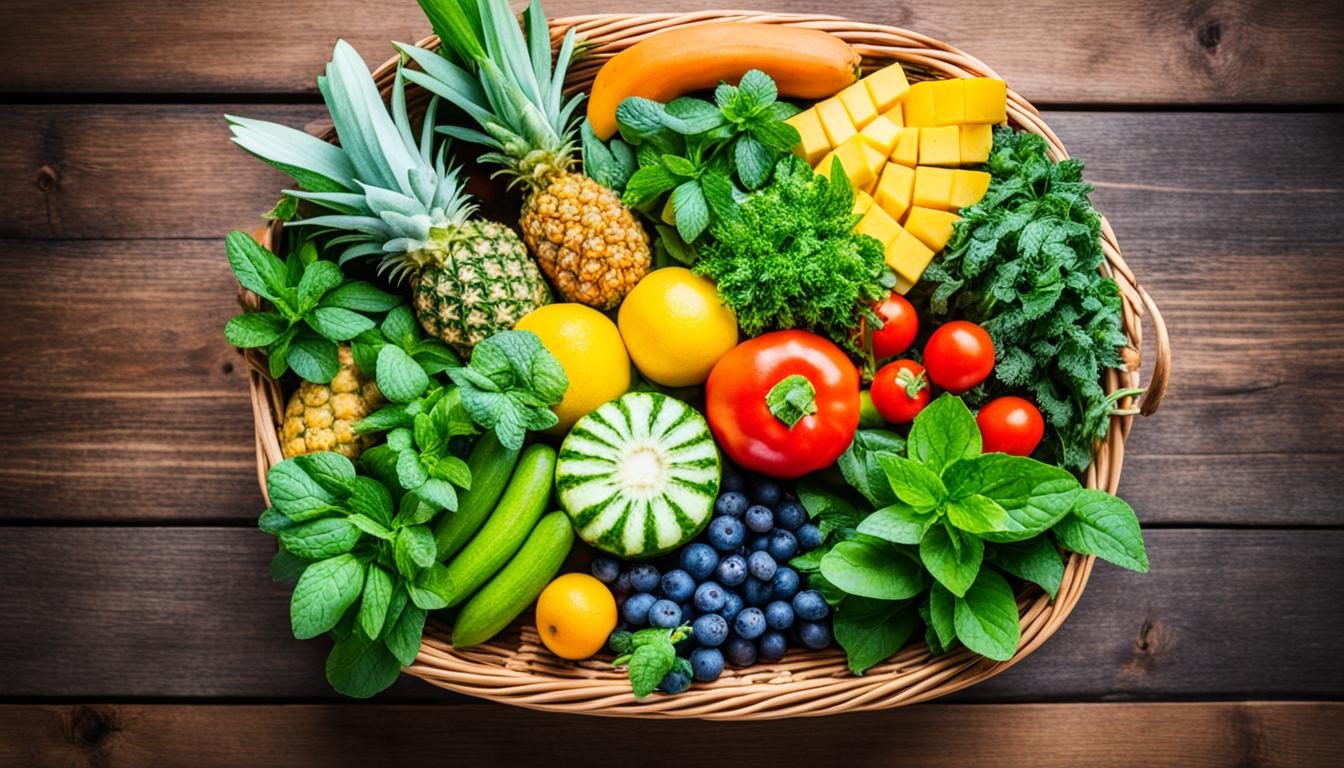
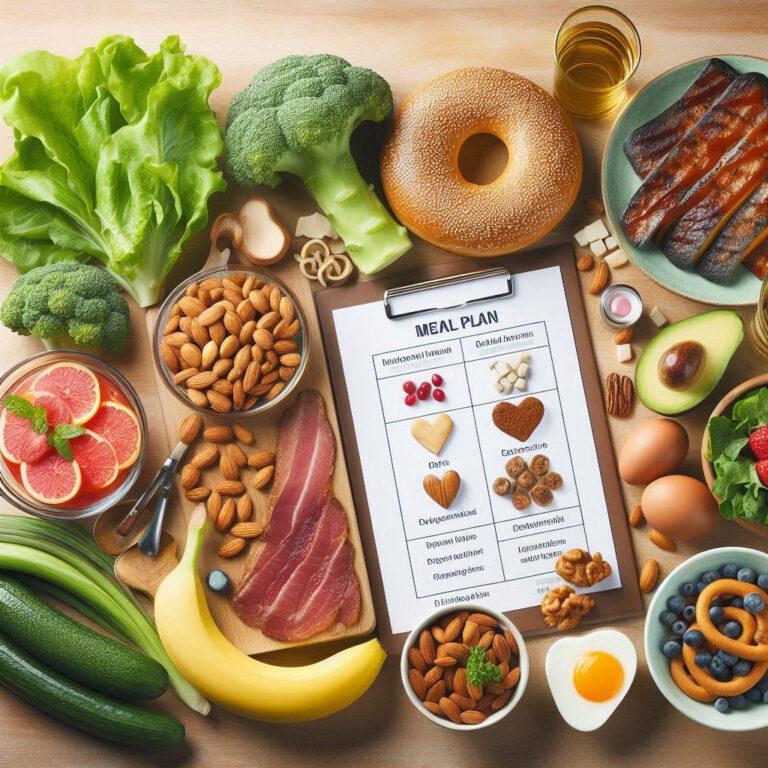
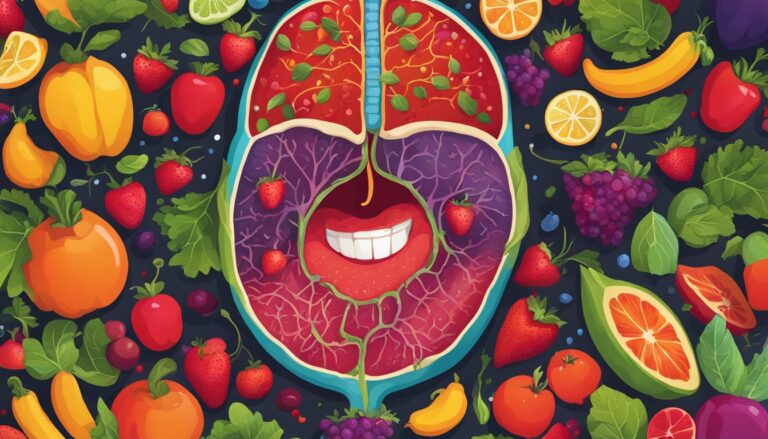
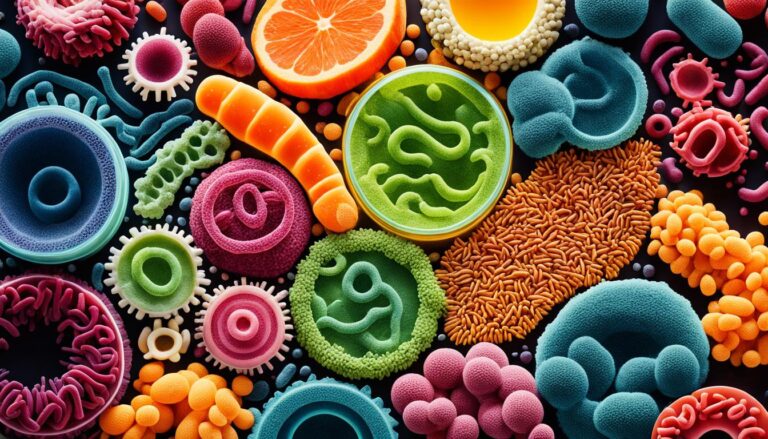
Can you be more specific about the content of your article? After reading it, I still have some doubts. Hope you can help me.
Can you be more specific about the content of your article? After reading it, I still have some doubts. Hope you can help me.
Of course! I’d be happy to help clarify any doubts you have. Could you please let me know which specific parts of the article you’re unsure about or what questions you’d like me to address? I’ll do my best to provide more details or explanations to make things clearer for you. Looking forward to your response!
I don’t think the title of your article matches the content lol. Just kidding, mainly because I had some doubts after reading the article.
Can you be more specific about the content of your article? After reading it, I still have some doubts. Hope you can help me.
Thanks for sharing. I read many of your blog posts, cool, your blog is very good.
Thank you so much for your kind words—I’m thrilled you enjoy reading my blog posts! Your support means a lot to me. If there’s anything specific you’d like to see or discuss, feel free to let me know!